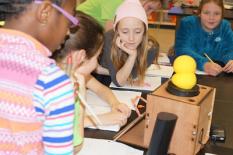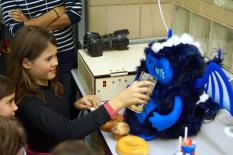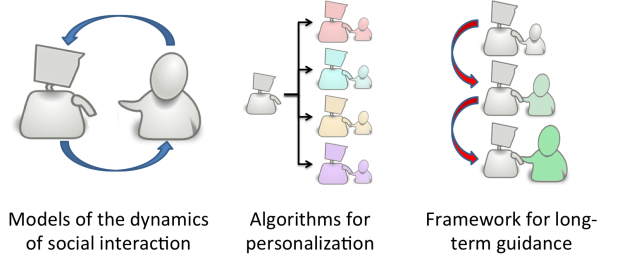Overview


Imagine a robot that can …
… guide a child toward long-term behavioral goals;
… be customized to the particular needs of the child;
… develop and change as the child does;
… engage the child as a peer, not as a parent, teacher, toy, or pet.
To achieve this vision, this Expedition will advance the state-of-the-art in socially assistive human-robot interaction from short-term interactions in structured environments to long-term interactions that are adaptive, engaging, and effective. This progress will require transformative computing research in three broad and naturally interrelated research areas:
1) The Expedition will develop computational models of the dynamics of social interaction, so that robots can automatically detect, analyze, and influence agency, intention, and other social interaction primitives in dynamic environments.
2) The Expedition will develop machine learning algorithms that adapt and personalize interactions to individual physical, social, and cognitive differences, enabling robots to teach and shape behavior in ways that are tailored to the needs, preferences, and capabilities of each individual.
3) The Expedition will develop systems that guide children toward specific learning goals over periods of weeks and months, allowing for truly long-term guidance and support.

This Expedition has the potential to substantially impact the effectiveness of education and healthcare for children, and the technological tools developed will serve as the basis for enhancing the lives of children and other groups that require specialized support and intervention. The proposed computing research is tied to a comprehensive student training program, bringing a compelling, engaging, and grounded STEM experience to K-12 students through in-school and after-school activities. It also establishes an annual training summit to provide undergraduates with the multi-disciplinary background to engage in this promising research area in graduate school. Finally, by establishing a brand name for socially assistive robotics, this effort will create a central authority for the distribution of high-quality, peer-reviewed information, providing a coherent focal point for enhancing outreach and education.
Yale University Publication, 2019 - NSF Grant
